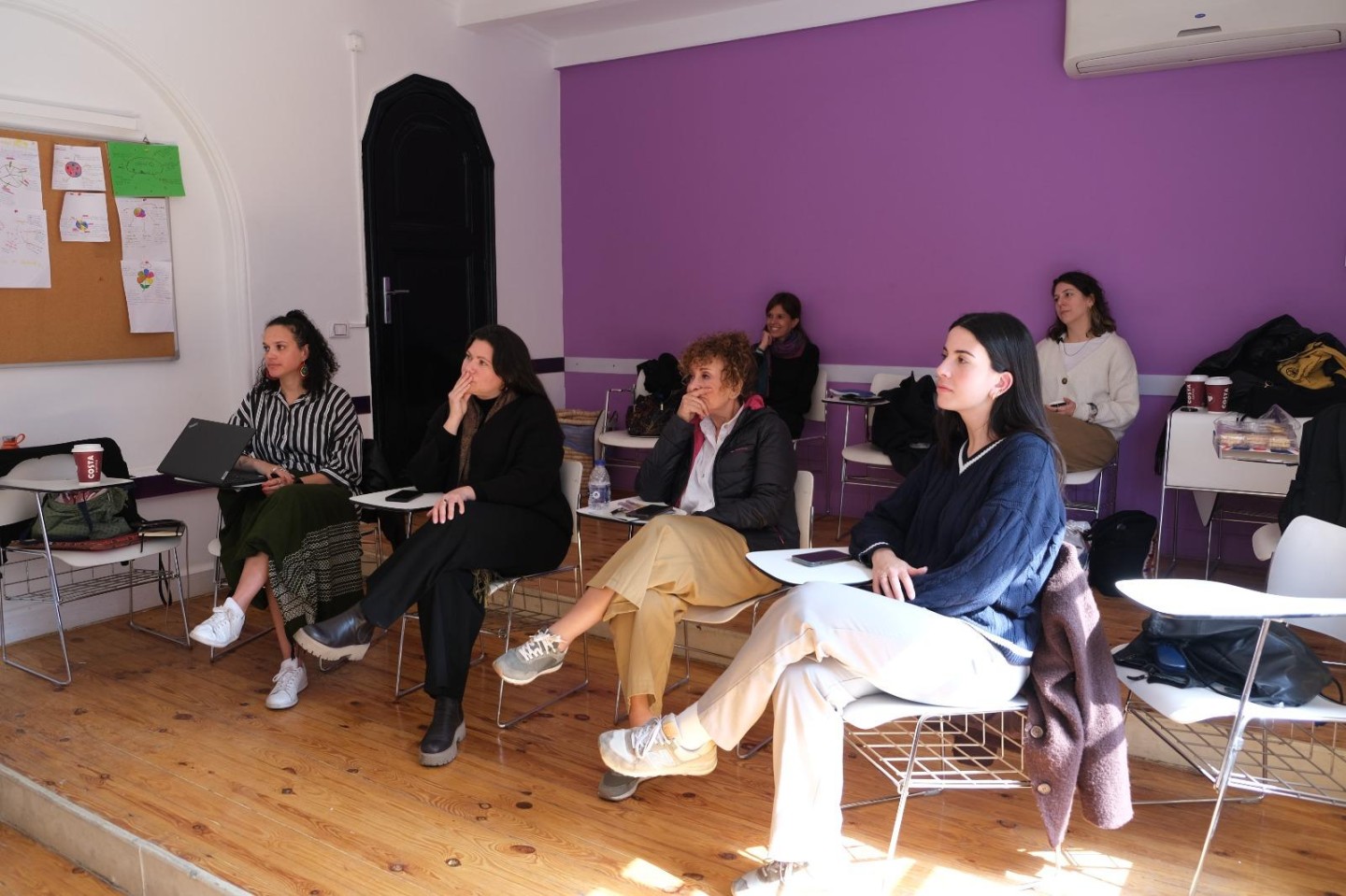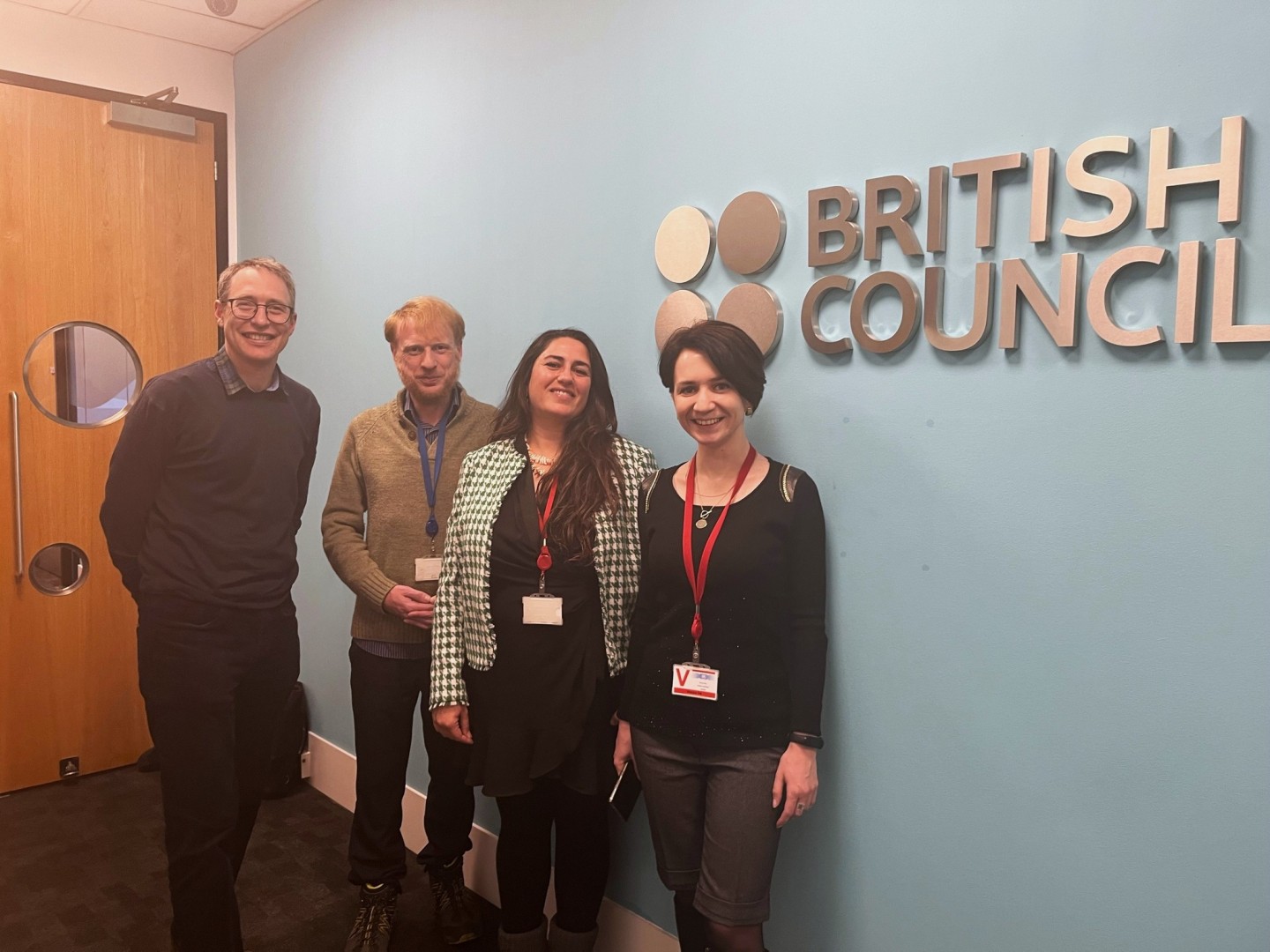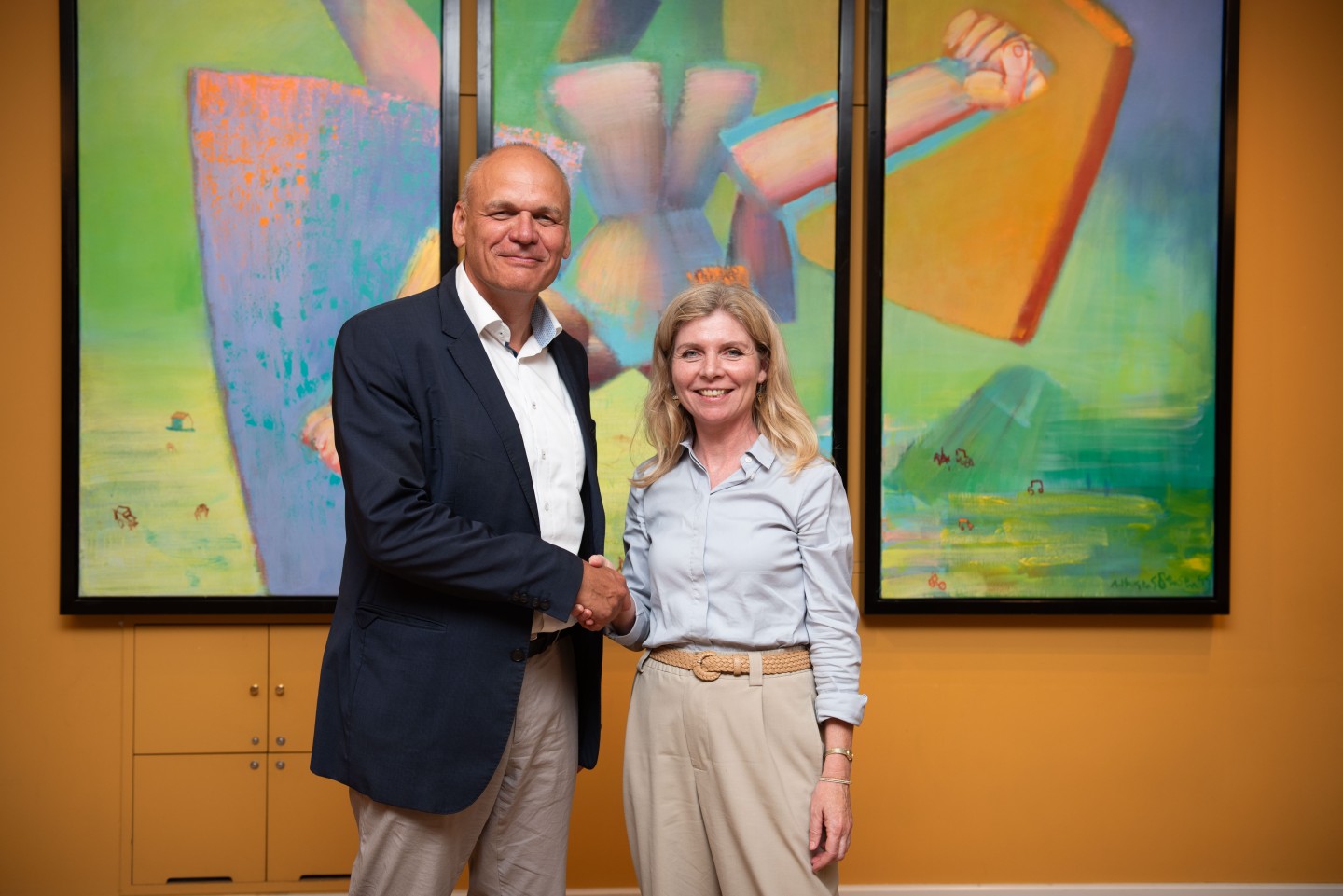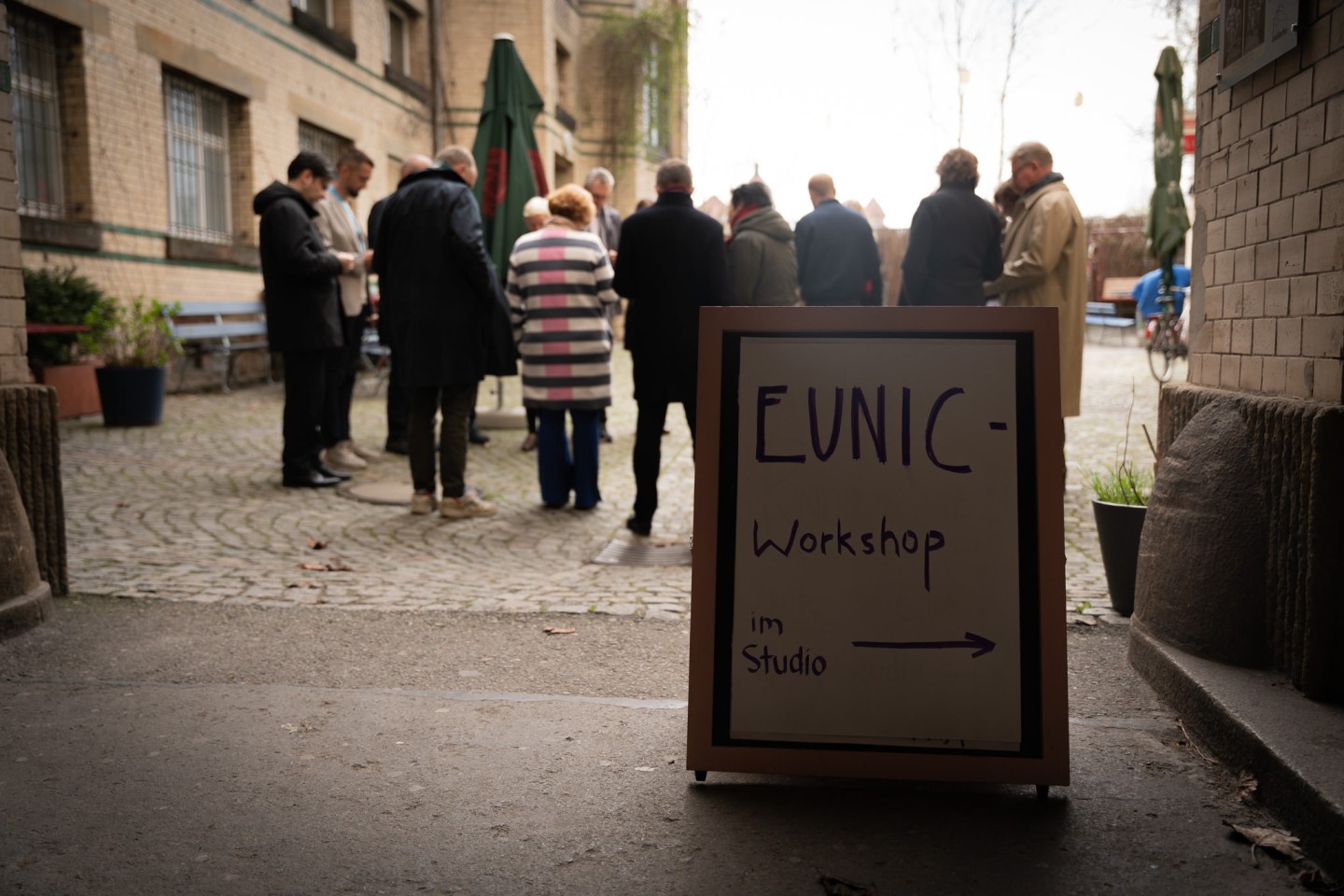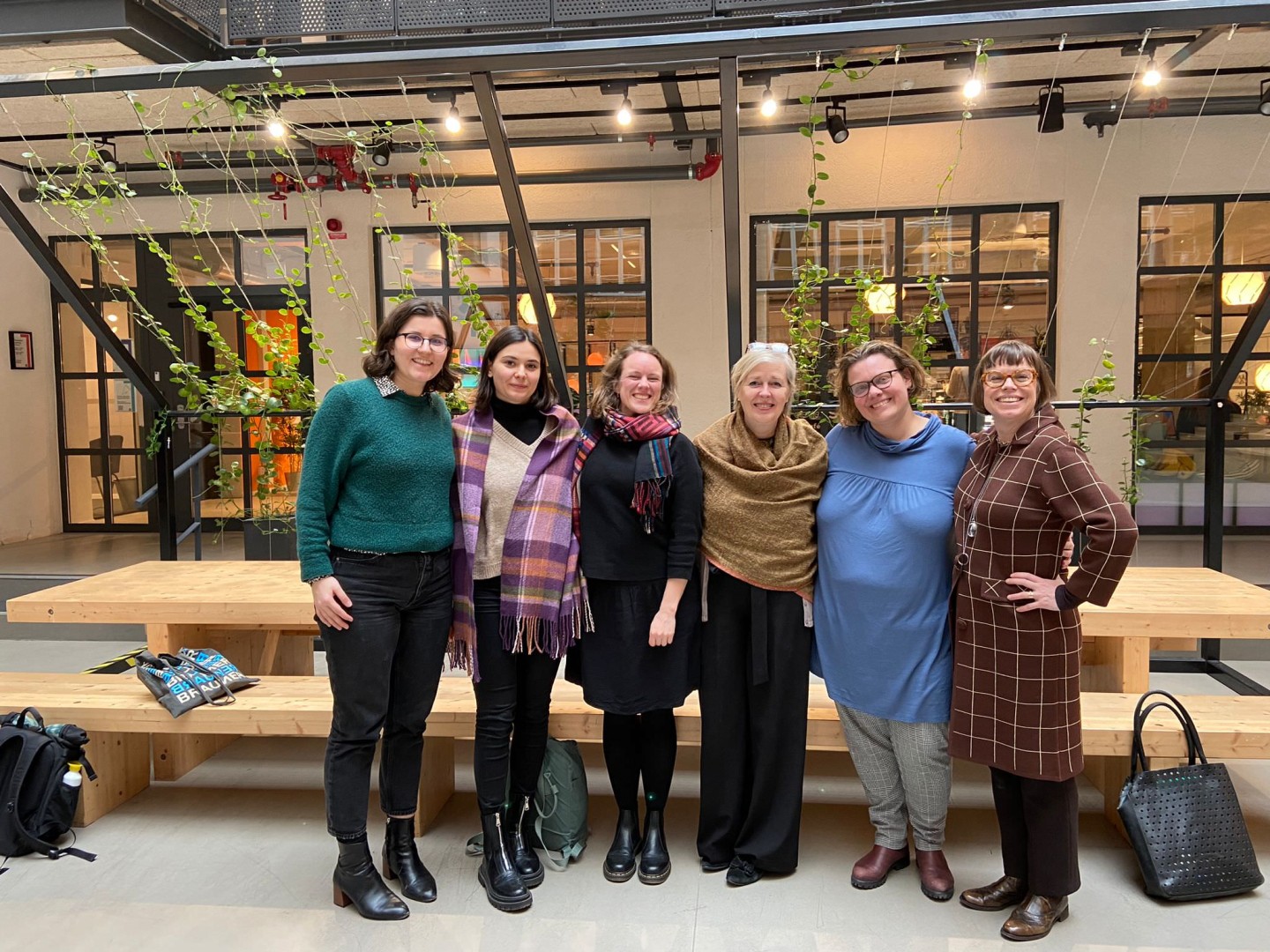
A visit to the Swedish Institute in Stockholm
In early March, Franziska Stambke from the EUNIC office had the opportunity to participate in the EUNIC Mobility Scheme and visit the Swedish Institute at their headquarters in Stockholm. From digital communication to international partnership programs, gender equality, diversity, and accessibility, the participants were able to learn about the amazing work the Institute is doing.

Together with other EUNIC member colleagues from the French Institute in Timisoara, the Polish Institute in Bucharest and ifa in Stuttgart, I arrived at the Swedish Institute located in Hammarby Sjöstad, in the south of Stockholm. Anna Maria, Senior Project Manager for thematic communication and analysis at the Institute, had developed a jam-packed program, filled with exciting and informative activities that gave us a glimpse into the various departments and fields of work of the Swedish Institute. From digital communication to international partnership programs, gender equality, diversity, and accessibility, we were able to learn about the amazing work the Institute is doing.
We work to make our communication positive, quick, and funny.
Sara Djupsund, Deputy head of global communication’s unit
One of the highlights of the visit was a meeting with the global communications unit where we got an inside look at the Institute's approach to digital communication. We learned how the project managers use humor and positive messaging to build interest and trust in Sweden around the world, especially when it comes to communication on human rights topics. Strong visuals are key! The exchange sparked a discussion on visual accessibility and how we can make our communication as inclusive as possible.
As someone with a background in Gender Studies at a Swedish university, I was particularly excited to learn about the Swedish Institute's work on Gender Equality and how they communicate these values. We were introduced to a digital toolkit that included a digital photo exhibition, videos, and social media materials around the topic of parenting and equal opportunities. The photos showed parenthood beyond deeply rooted conceptions of gender roles, demonstrating the diversity of how a family can look. This way of communicating values visually was a wonderful example of hope-based communication, a concept that I have become a huge fan of and try to implement in my work daily! As we learned more about gender equality as an essential pillar of the Swedish Institute’s work, we delved into an enriching discussion about Feminist Foreign Policy and how the Swedish Institute can still pursue its feminist principles under Sweden’s new government, as well as Germany’s new approach to Feminist Foreign Policy.
A wonderful addition to the program was an input by the Unstraight Museum of Stockholm, an organization that empowers LGBTQ+ communities by collecting stories from non-normative perspectives, working in collaborations with LGBTQ+ NGOs and showing exhibitions around the globe. Ulf Petersson, Chairman of the board, and artist and photographer “Dawood” shared with us personal insights into their work, such as a photo exhibition detailing the struggle for LGBTQ+ rights in Belgrade. It was very touching to hear from local partners directly on the ground and their experiences with using culture “as a means of change”. At EUNIC, diversity and inclusion plays a big role in our work for international cultural relations. With several projects funded by the EULAT4Culture fund and European Spaces of Culture, we support the protection of LGBTQ+ rights. Together with the other EUNIC member colleagues, we also discussed the challenges of communicating openly and freely about LGBTQ+ rights in different contexts, and how cultural organizations can support local partners.
For us it is important to work with organisations that see culture as a means of change.
Ulf Petersson, Chairman of the board, Unstraight Museum
Overall, the visit was a fantastic opportunity to connect with colleagues from other EUNIC member organizations and share our passion for communication and cultural relations. I am grateful to the Swedish Institute for their warm welcome (and of course the Fika!) and the inspiring and honest discussions we had. And a big thank you to EUNIC for making this exchange possible and letting me be a part of the wider Mobility Scheme community.
